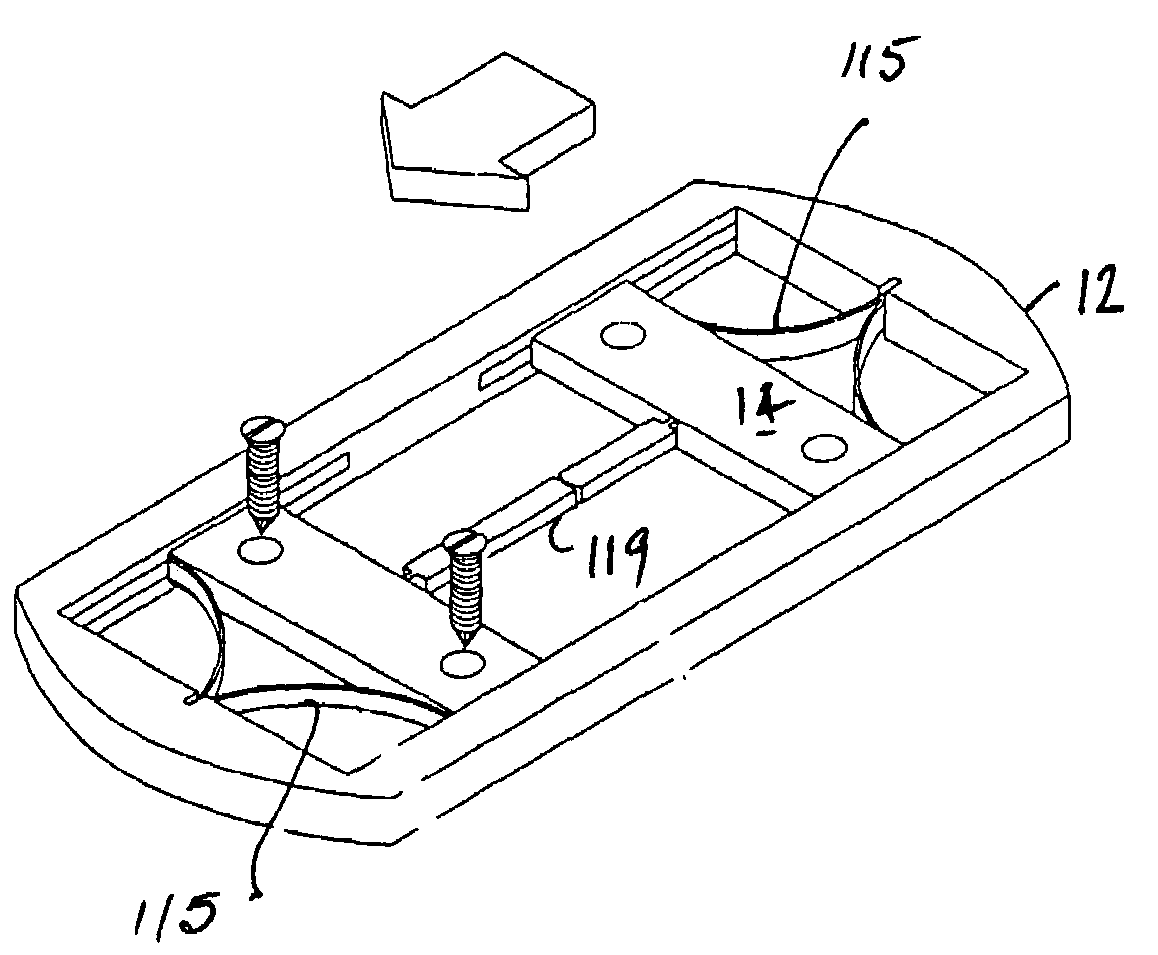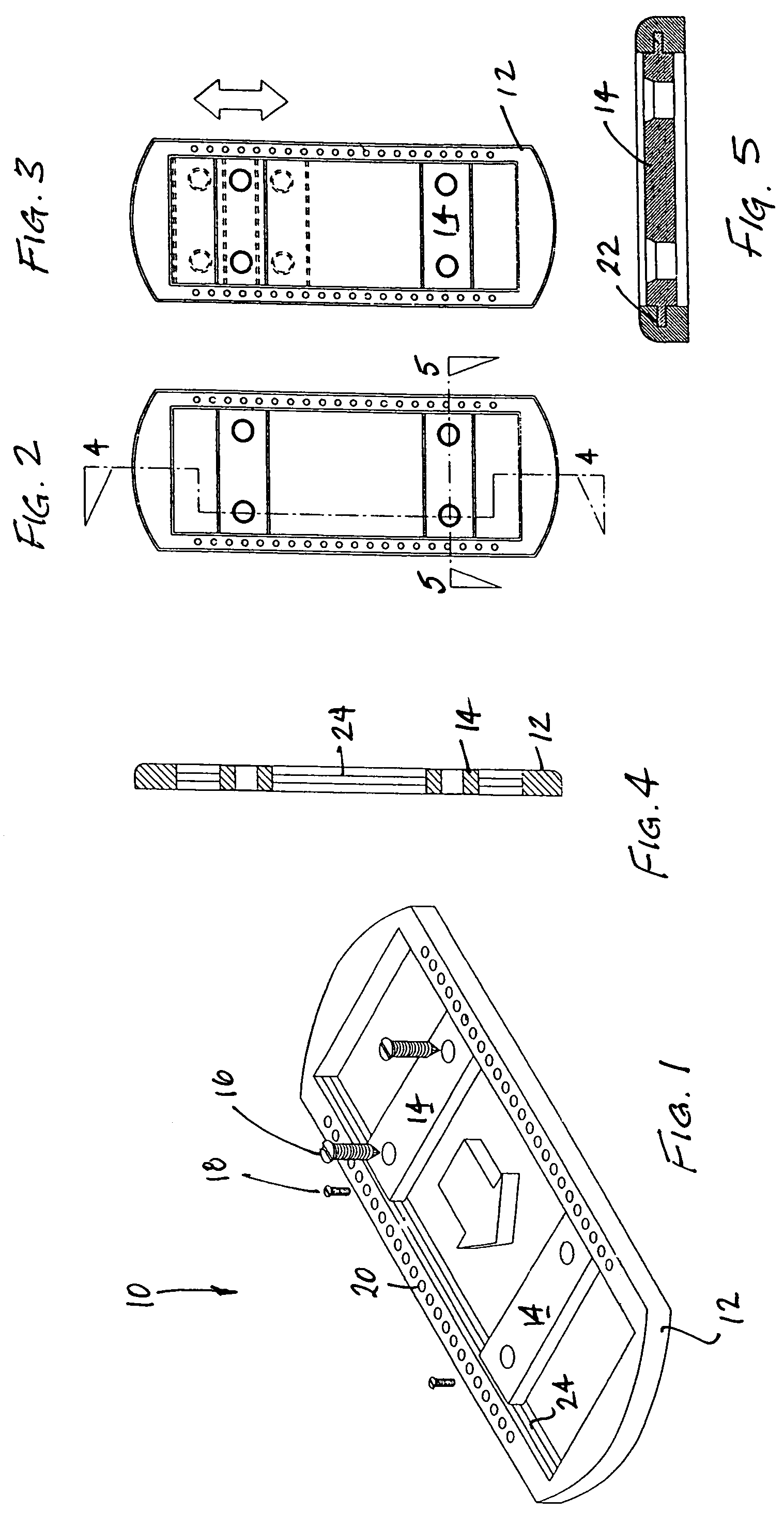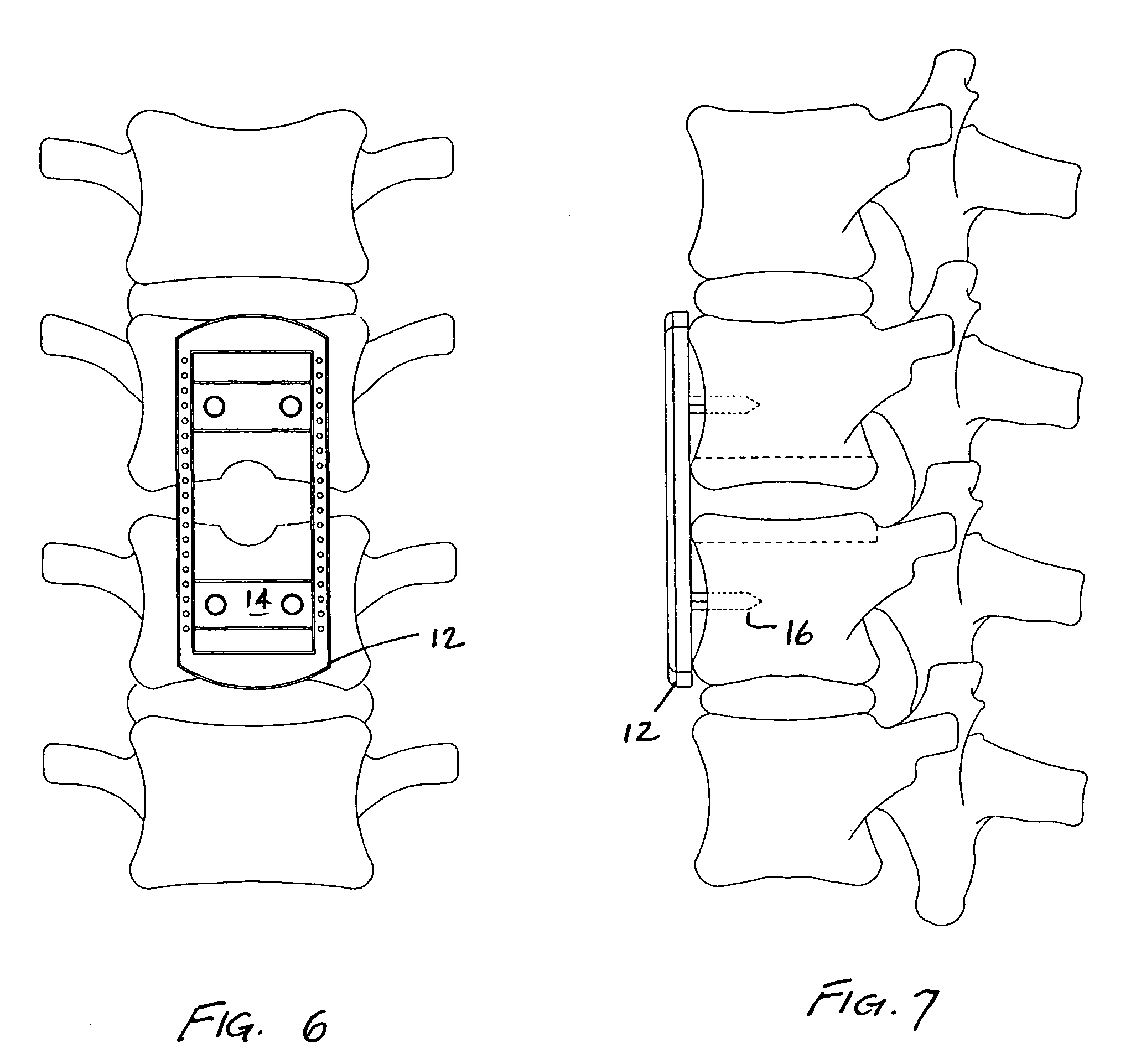Orthopedic fusion plate having both active and passive subsidence controlling features
a technology of fusion plate and passive subsidence, which is applied in the field of orthopedic surgery, can solve the problems of disc herniation or protrusion, disc breakage or degeneration, and variety of problems or disease states, and achieve the effect of facilitating bony union and reducing the deleterious effects of subsiden
- Summary
- Abstract
- Description
- Claims
- Application Information
AI Technical Summary
Benefits of technology
Problems solved by technology
Method used
Image
Examples
Embodiment Construction
[0030]FIGS. 1-5 depict the component parts of a passive version of a translation fusion plate device according to the invention. The device 10 includes a rigid perimetral frame 12 and pair of translation plates 14. Bone screws 16 for fixing the translation plate 10 to a vertebral bone are also shown. Set screws 18 may be inserted in holes 20 to fixate the translation plate to the frame 12, should translation of one or more of the plates not be desired. As FIG. 5 shows, each plate 14 has at each end a tongue 22 which rides in a groove 24 in the facing longitudinal inner edge of the frame. Alternatively, the grooves could be formed on the plate ends and the tongues on the inner frame edges. Either way, the plate is retained within the frame opening while allowing for unidimensional translational movement, and no relative rotation between the plates, or between either plate and the frame.
[0031]FIGS. 6 and 7 shows the passive translation plate as it appears when attached to spinal verte...
PUM
 Login to View More
Login to View More Abstract
Description
Claims
Application Information
 Login to View More
Login to View More - R&D
- Intellectual Property
- Life Sciences
- Materials
- Tech Scout
- Unparalleled Data Quality
- Higher Quality Content
- 60% Fewer Hallucinations
Browse by: Latest US Patents, China's latest patents, Technical Efficacy Thesaurus, Application Domain, Technology Topic, Popular Technical Reports.
© 2025 PatSnap. All rights reserved.Legal|Privacy policy|Modern Slavery Act Transparency Statement|Sitemap|About US| Contact US: help@patsnap.com



